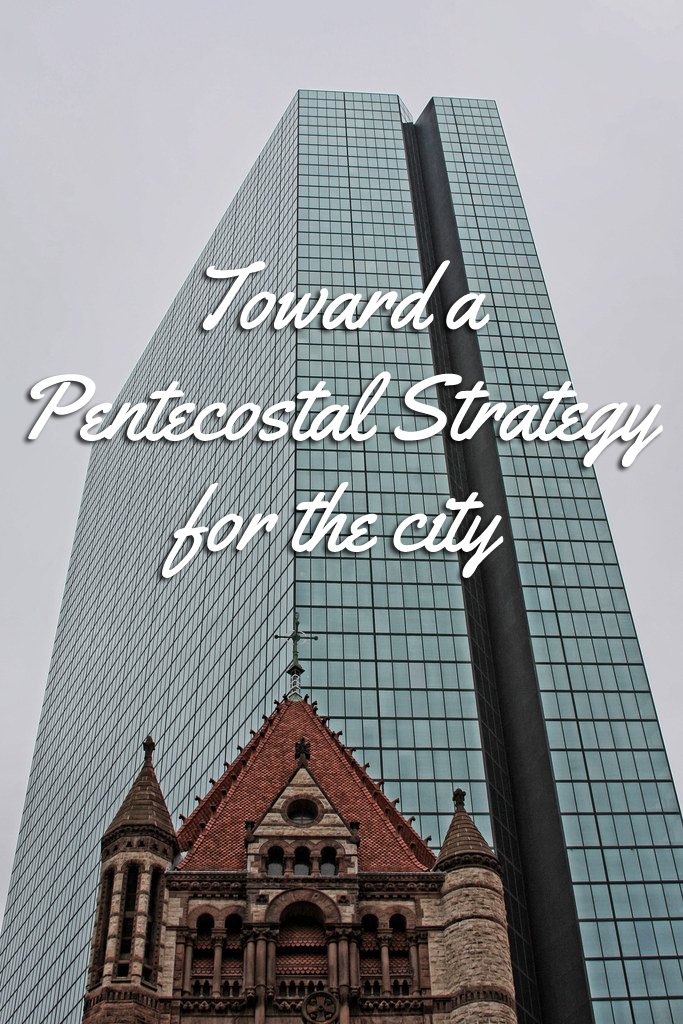Toward a Pentecostal Strategy for the City
Toward a Pentecostal Strategy for the City
One of the questions that seems to come up in this course discussion is how to change the world around us with a more positive and effective approach toward using the Gospel of Salvation. In this particular module, the difficulty addressed is ethnocentricity. The particularity of our search then arrives at the more detailed question, how can we change the culture (respectively subcultures) of our church congregations? This is a drastic move from a closed circle toward an outreach community that many congregations are unable to accomplish. How do we then empower such congregations to be transformed into cultural reach-outs to a single ethnos or multiple ethnic groups?
Problem
The problem in the first quarter of the 21st century has been incongruity of our church strategy with the times we live in and the mindset they occupy. We’ve been preparing the church for the multicultural battle, all and while we should have been equipping the saints how to rebuild the walls since the battle has been lost.
We’ve been equipping leaders for the ministry while the church ship has been sinking only to end up with well trained captains of a sunken fleet. And in a doomed attempt to reconcile the reality of the ministry with their training, they have turned to wave walkers who briefly surface for breaths of fresh air during Sunday worship only to return to the deep blue walk of their daily ministry never finding their lost piece of eight.
For the battle was lost long ago before the present generation of ministers ever came to existence. They know not the battle. They’ve only seen the ruins that were left within the broken walls of the church. And they have been struggling to reconcile the incomputable of what church eldership has been teaching them to battle against with the Nehemiah calling for restoration, which God has placed upon them. For the answer has never been in building a New Jerusalem for a fresh start, but restoring the old Jerusalem and its former glory to a new state that reclaims our history and heritage.
Context
Recent analysis of migrant churches in the United States reveals that the predominant majority of them are located in cities which have a high influxation and concentration of immigrants. Such localities are called “gateway cities”. Immigrants typically enter the United States through one of these cities and settle there. These areas contain over half of the foreign-born population in the United States as follows:
- New York, NY – Foreign born population 18.7%
- Los Angeles, CA – Foreign born population 27.1%
- Houston, TX – Foreign born population 12.3%
- Washington, DC – Foreign born population 8.6%
- Miami, FL – Foreign born population 33.6%
- Chicago, IL – Foreign born population 11.1%
- San Francisco, CA – Foreign born population 20.0%
Strategy
Asking the right questions is important, but the answers cannot be generic for all ethnic groups or cultural settings. There is a strong need to be flexible and observe changes in culture, but not to change the message of the Gospel or compromise our witness. Several common things are noted in any cultural setting where our ministry is involved:
First and foremost, people of all cultures prefer to be personal with a purpose, rather than being project driven. No one longs to be part of someone else’s project. Yet, our very existence demands personal purpose, which could serve as a great cultural catalyst in a church ministry.
Secondly, cross cultural ministry is not done merely on relationships, but on being real in the relationships. The greatest halt of ministry work is when people realize the relationship with the church has not been a real one, but merely a part of a program or a paradigm.
Finally, our cross cultural model for ministry should not be just salvation oriented, but soul oriented. There is a great difference between writing down the number of saved every Sunday and actually caring for the eternal well-being of the saved souls. In fact, this is so fundamentally determinative that it should be the goal in mind of every new church plant.










Comments